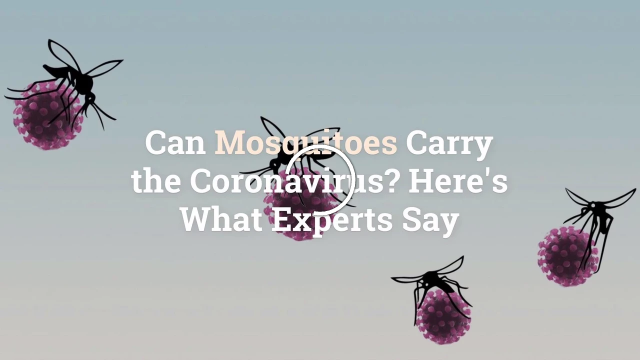 |
| Five things you should know now about the COVID-19 pandemic-Coronavirus disease (COVID-19) advice for the public |
On Wednesday, the World Health Organization (WHO) advanced the status of the outbreak of COVID-19 as a pandemic. Here are five important information about what this means for you and your community.
Coronavirus disease (COVID-19) advice for the public
Prior to Wednesday's WHO announcement, the outbreak of COVID-19 was described by the United Nations Health Agency as an epidemic, meaning it is spreading to many people and many communities at the same time.
Labeling the outbreak epidemic shows that it has officially spread worldwide, and is also a reflection of WHO's concern about what it calls the "dangerous levels of coronovirus, severity and inactivity" , And expect the number cases, deaths and affected countries to continue to climb.
2) Should I be more worried about COVID-19 now?
Calling COVID-19 an epidemic does not mean that it has become more deadly, but rather an acceptance of its global spread.
WHO chief Tedros Adnanan Ghebreyus said in a media briefing on Wednesday when he asserted that the epidemic label does not change the WHO's assessment of the threat posed by the virus: "It does not change what the WHO is doing." And it doesn't change what countries should do. "
Tedros also asked the world not to fix the word "epidemic", but instead of focusing on five other words or phrases, start with a "P": prevention, preparedness, public health, political leadership, and people.
The WHO chief acknowledged that COVID-19 prevalence is the first pandemic caused by a coronavirus (ie any type of major virus that causes more common illnesses ranging from the common cold).
However, he also said that all countries can still change the course of this epidemic, and this is the first time, which can actually be controlled.
3) What should countries do?
WHO reiterated its call to trace, test, treat, isolate, trace, and mobilize its citizens to ensure that with just a few cases prevented widespread dissemination throughout the community Can go
Although some 11, 000 cases have been reported, in 118 countries, more than 90 percent of those cases occur in only four countries: China, Italy, South Korea and Iran.
In those two countries (China and South Korea), the number of new cases is, in the words of WHO, a "considerable decline". 81 countries have not yet reported any COVID-19 cases and in 57 countries, only 10 or fewer cases have been reported.
However, there is still considerable concern that many countries are not doing enough quickly, or that the health agency says it is necessary to take immediate and aggressive action.
Even before the declaration of the epidemic, the WHO was advocating an entire government's approach to dealing with the crisis, on the basis that every sector, not just the health sector, is affected.
Even countries where the virus has spread throughout the community, or within large population groups, can still turn the tide of the epidemic, Tedros said, adding that many countries have shown that the virus can be suppressed and controlled. Can.
4) What should I do?
As long as it makes sense to feel anxious about the outbreak, WHO emphasizes the fact that, if you are not in the area where COVID-19 is spreading, or have not traveled from the area where The virus is spreading, or is not in contact. With an infected patient, your risk of infection is low.
Nevertheless, we all have a responsibility to protect ourselves and others.
Everyone should wash their hands frequently (and wash them well, with soap); Maintain a distance of at least one meter from someone's coughing or sneezing and avoid physical contact while saluting; Avoid touching our eyes, nose and mouth; Cover mouth and nose with bent elbows or disposable tissue while coughing or sneezing; And stay home and seek therapy from local health providers if you feel unwell.
As long as the virus infects people of all ages, there is evidence that older people (60 and older), and with underlying health conditions (such as heart disease, diabetes, chronic respiratory illness, and cancer), have a high Are at risk
People in these categories are being advised to take further measures, including making sure any visitors wash their hands, regularly cleaning and disinfecting home surfaces, and spreading to their community Make a plan in preparation.
The WHO and other UN agencies have underscored the importance of solidarity, and have avoided stigmatizing community members due to the epidemic. "We are in this together", Tedros said on Wednesday, urging everyone to "do the right thing with pacifying and protecting the citizens of the world". It is worth mentioning that. "
5) Where can I get reliable information?
The best place to get reliable information is the WHO website www.who.int. Here you can get comprehensive advice, including more information about reducing the risk of spreading, or catching COVID-19.
The site is currently being updated on a daily basis, so check in regularly.
It is also appropriate to check the official website of your local and regional municipality, which may contain specific health information, as well as news related to your community, such as travel guidance, and outbreak of hotspots.
The WHO has warned that many myths and scams are circulating online. The WHO states that criminals have been taking advantage of the spread of the virus to steal money or sensitive information, if claimed to have contacted a person or organization, they should take steps to verify their authenticity.
The WHO site includes a "myth-buster" section, which explains some of the unbalanced theories circulating online. For example, it is a myth that cold weather can kill the virus, that bathing or eating garlic can prevent infection, or that mosquitoes can spread the virus. There is no evidence for any of these claims.






No comments:
Post a Comment